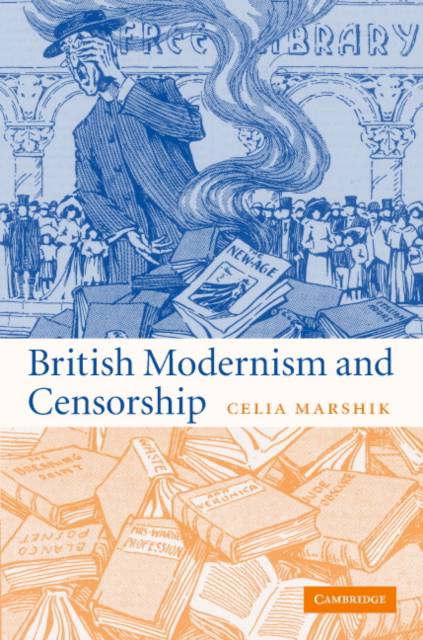
Je cadeautjes zeker op tijd in huis hebben voor de feestdagen? Kom langs in onze winkels en vind het perfecte geschenk!
- Afhalen na 1 uur in een winkel met voorraad
- Gratis thuislevering in België vanaf € 30
- Ruim aanbod met 7 miljoen producten
Je cadeautjes zeker op tijd in huis hebben voor de feestdagen? Kom langs in onze winkels en vind het perfecte geschenk!
- Afhalen na 1 uur in een winkel met voorraad
- Gratis thuislevering in België vanaf € 30
- Ruim aanbod met 7 miljoen producten
Zoeken
Omschrijving
Government censorship had a profound impact on the development of canonical modernism and on the public images of modernist writers. Celia Marshik argues that censorship can benefit as well as harm writers and the works they create in response to it. She weaves together histories of official and unofficial censorship, of individual writers and their relationships to such censorship and of British modernism. Throughout, Marshik draws on an extraordinary range of evidence, including the files of government agencies and social purity organisations. She analyses how works were written, revised, published and performed in relation to this complex web of social forces. Chapters of Dante Gabriel Rossetti, Bernard Shaw, Virginia Woolf, James Joyce and Jean Rhys demonstrate that by both reacting against and complying with the forces of repression, writers reaped personal and stylistic benefits for themselves and for society at large.
Specificaties
Betrokkenen
- Auteur(s):
- Uitgeverij:
Inhoud
- Aantal bladzijden:
- 272
- Taal:
- Engels
Eigenschappen
- Productcode (EAN):
- 9780521859660
- Verschijningsdatum:
- 6/07/2006
- Uitvoering:
- Hardcover
- Formaat:
- Ongenaaid / garenloos gebonden
- Afmetingen:
- 186 mm x 233 mm
- Gewicht:
- 798 g

Alleen bij Standaard Boekhandel
+ 366 punten op je klantenkaart van Standaard Boekhandel
Beoordelingen
We publiceren alleen reviews die voldoen aan de voorwaarden voor reviews. Bekijk onze voorwaarden voor reviews.









